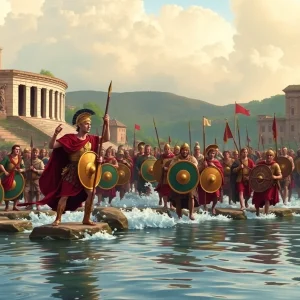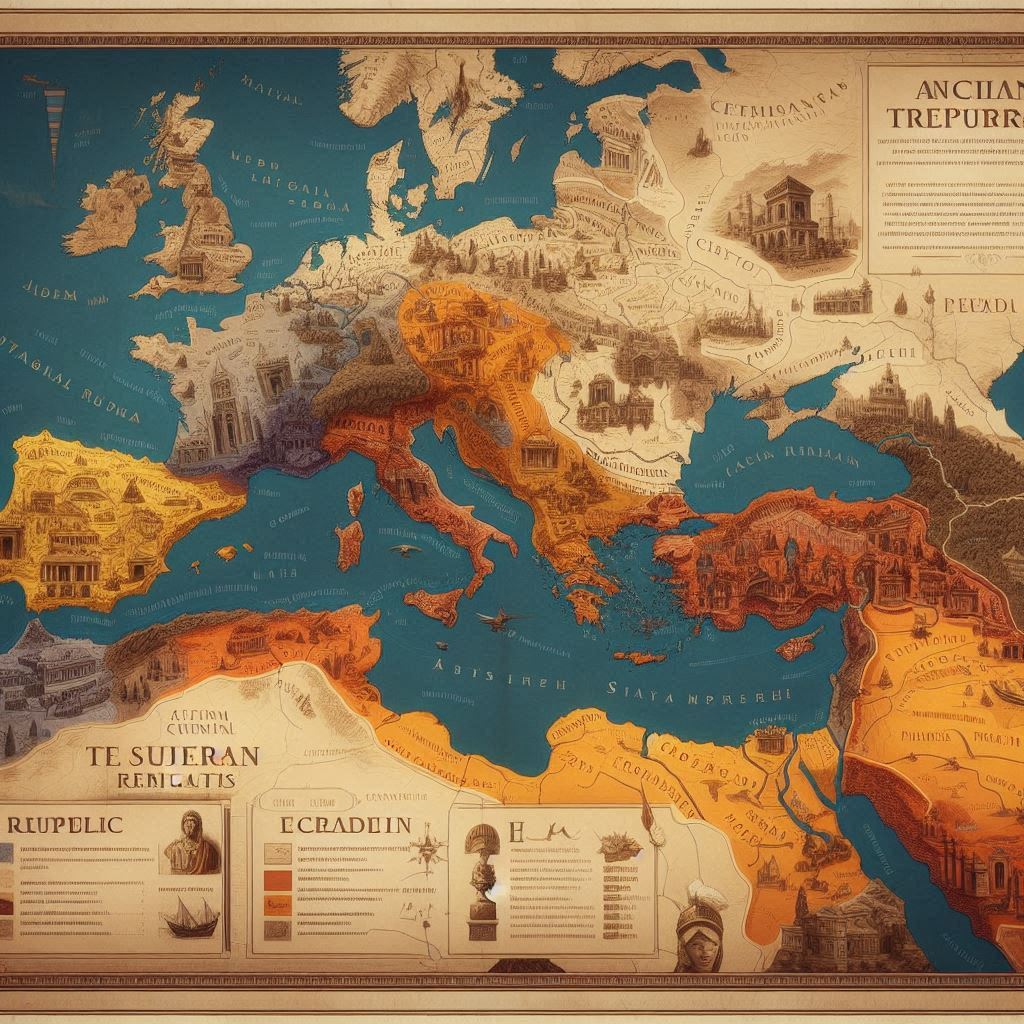The name Julius Caesar echoes through history as the man who forever changed the course of Rome. Before him, Rome was a republic; after him, it stood on the brink of empire. His life was a blend of military genius, political maneuvering, and ambition—factors that contributed heavily to the rise of the Roman Empire. But how did this single figure shape the destiny of a civilization? Let’s unravel his story.
The Dawn of Caesar: A Leader with Ambition
Julius Caesar wasn’t born with the title of emperor, but he was born with a vision—a vision of Roman supremacy. Born in 100 BC, he rose through the ranks of Rome’s complex political system, mastering its intricacies and gaining the favor of the people. His charm and oratory skills made him a natural leader. He understood that power lay not just in the Senate, but in the hearts of Rome’s citizens.

Conquests That Changed Everything
One of Caesar’s key contributions to Rome’s rise was his series of conquests. In 58 BC, he embarked on the Gallic Wars, which lasted nearly 8 years. With his sharp military mind, he expanded Rome’s territory into modern-day France and Belgium. These victories brought wealth and glory to Rome, but more importantly, they solidified his reputation as an unstoppable military leader. He became a hero in the eyes of the Roman legions—loyal to him more than the Senate. This loyalty would later be the key to his power grab.
Crossing the Rubicon: The Point of No Return
In 49 BC, Caesar made a fateful decision: he crossed the Rubicon River with his army, uttering the words, “Alea iacta est” (“The die is cast”). By doing so, he defied the Roman Senate’s orders, sparking a civil war. It was a move that spoke volumes—a declaration that he would not back down, even if it meant war. And indeed, it did. Caesar’s actions led to a bloody conflict between his forces and those loyal to Pompey, a fellow Roman general and former ally. This civil war shook the very foundations of the Republic.

Dictatorship in Rome: A New Kind of Leadership
By 45 BC, Julius Caesar emerged victorious, taking control of Rome and declaring himself “Dictator for life”. The title may sound tyrannical today, but back then, it represented a shift—a shift from the old republican ideals to a new reality where power was concentrated in the hands of one man. Caesar initiated sweeping reforms to stabilize Rome, including restructuring the calendar (which led to the Julian calendar) and granting citizenship to people in far-flung Roman territories. He aimed to create a more unified Rome, a Rome that would be the foundation of an empire.
Hidden Powers Behind Caesar
But was Caesar truly the lone genius behind this transformation? Not entirely. Caesar’s rise was supported by powerful allies like Crassus, a wealthy Roman who bankrolled his campaigns, and Pompey (before their fallout), who provided military and political support. This hidden network of alliances gave Caesar the strength to challenge the traditional power structures of the Republic. However, as he grew in power, those alliances crumbled, leading to betrayals that ultimately sealed his fate.
The Assassination: A Stab at Stability
Yet, Caesar’s ambition would also be his downfall. On the Ides of March, 44 BC, he was assassinated by a group of senators, including his once-ally Brutus. They believed his growing power threatened the very core of the Roman Republic. Ironically, their actions only accelerated Rome’s transformation into an empire. The power vacuum left by Caesar’s death led to further civil wars, ultimately paving the way for his adopted heir, Octavian (later known as Augustus), to rise as the first Roman Emperor.
Why Julius Caesar Mattered in Rome’s Transformation
Julius Caesar’s role in the rise of the Roman Empire is undeniable. He shattered the old system and revealed Rome’s potential as a unified entity under centralized rule. He was the bridge between the Republic’s idealism and the Empire’s reality. Without Caesar’s vision and audacity, there might not have been an Augustus—there might not have been an empire.
He was not the first emperor, but he was the architect who built the roads leading there, quite literally and figuratively.
The Legacy of Caesar: A Double-Edged Sword
Caesar’s legacy is complex—part hero, part dictator, part martyr. To the common people, he was a champion; to the Senate, he was a threat. His story is a reminder that the rise of the Roman Empire was not just about power and glory—it was about the sacrifices, the betrayals, and the ambition that carved Rome’s path. Caesar’s rise was both a triumph and a tragedy, setting in motion events that would forever change the world.
In the end, Julius Caesar may not have lived to see Rome become an empire, but without him, the empire might never have been born. He played the game of power with unmatched skill, and though it ultimately cost him his life, his name endures—etched in history as the man who dared to change Rome forever.



